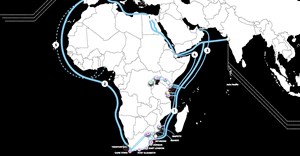East Africa internet disrupted by another major undersea cable cut

Safaricom acknowledged the outage, which affected one of the undersea cables carrying internet traffic in and out of the country, and assured customers it was working to minimise disruptions.“
We have experienced an outage on one of the undersea cables that deliver internet traffic in and out of the country," Safaricom said in a notice.
"We have since activated redundancy measures to minimise service interruption and keep you connected as we await the full restoration of the cable.”
Liquid Intelligent Technologies chief technology and innovation officer, Ben Roberts, confirmed faults in both the Eastern Africa Submarine Cable System (EASSy) and the Seacom cables, effectively severing all sub-sea capacity between East Africa and South Africa.
He claimed the EASSy fault occurred 45km north of Durban.
Its me again. Internet to East Africa is severely impaired. All sub sea capacity between East Africa and South Africa is down.
EASSy Cable - Fault confirmed
Seacom Cable - Observing Fault that occurred at same time.
3 cable cuts in Red Sea (Seacom, EIG, AAE1) remain unrepaired.
— Ben Roberts �������� (@benliquidkenya) May 12, 2024
Roberts also reported unrepaired cuts in three additional submarine cables in the Red Sea, further exacerbating the outage.
Major telcos affected
The outage affected major internet service providers across the region, including Airtel and MTN. Users in Kenya, Uganda, Rwanda, Malawi, Mozambique, and Madagascar reported disruptions.
The incident highlights the vulnerability of the region's internet infrastructure, which relies heavily on a network of undersea cables. Roberts ruled out sabotage, suggesting it was an unfortunate coincidence.
He noted that alternative cables connecting East Africa to Europe could gradually restore service as data is rerouted, but the loss of the vital EASSy link to data centres in South Africa would have a significant impact.
This is the second major internet outage to hit Africa in recent months, following a similar incident in March 2024.
Repeated disruptions highlight the dependence of the internet on submarine cables, which carry over 90% of intercontinental data traffic.
Efforts are underway to repair the damaged cables and fully restore internet connectivity in the region.













